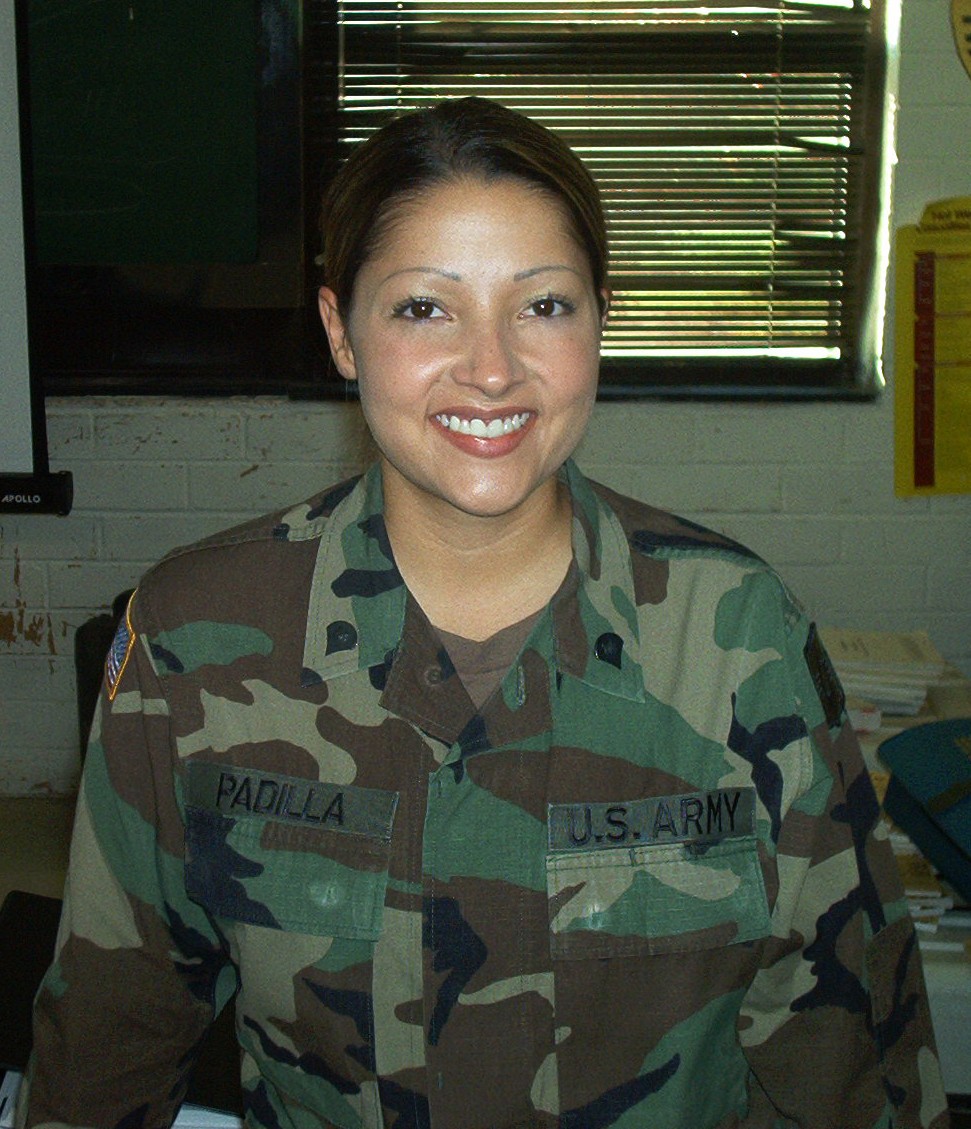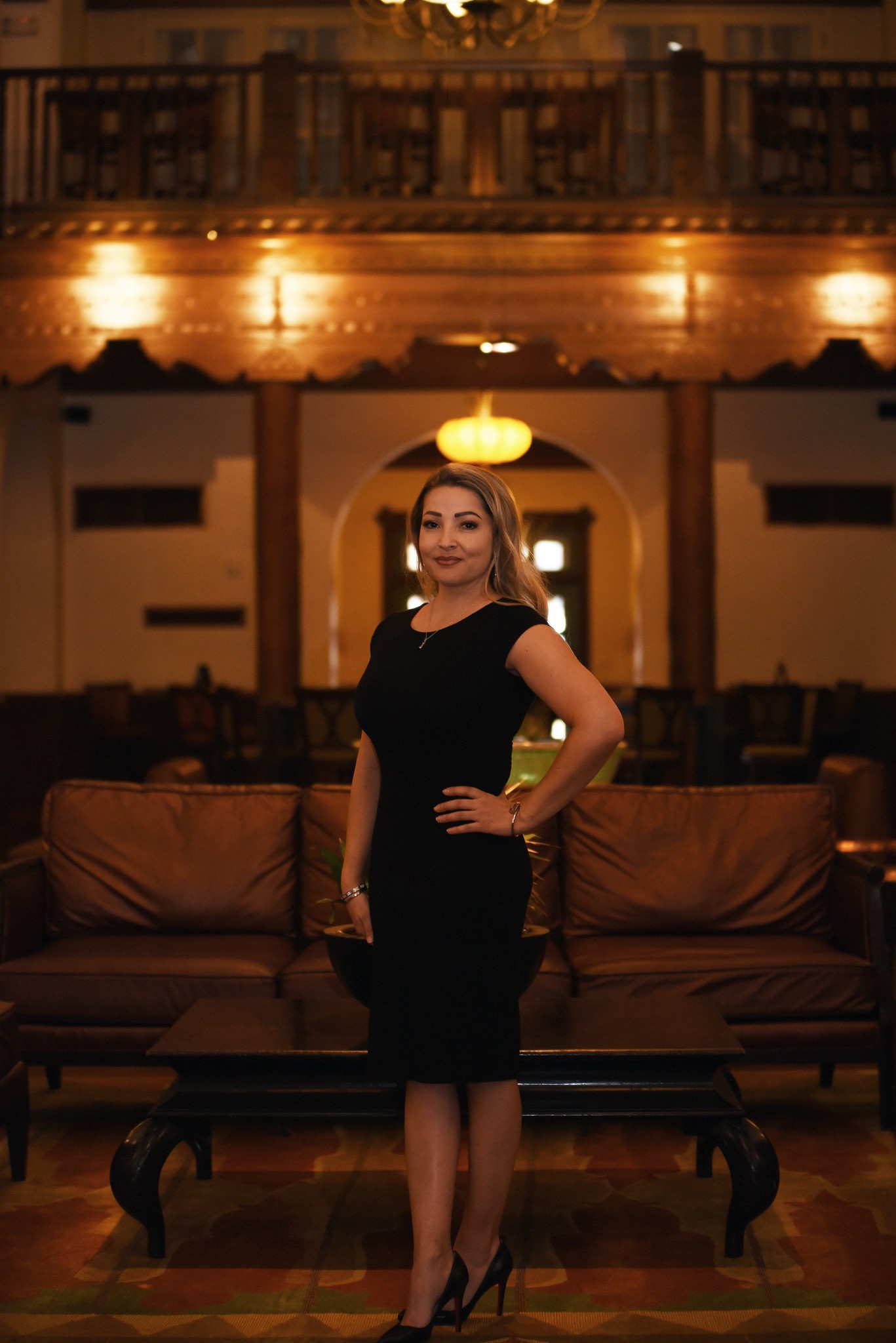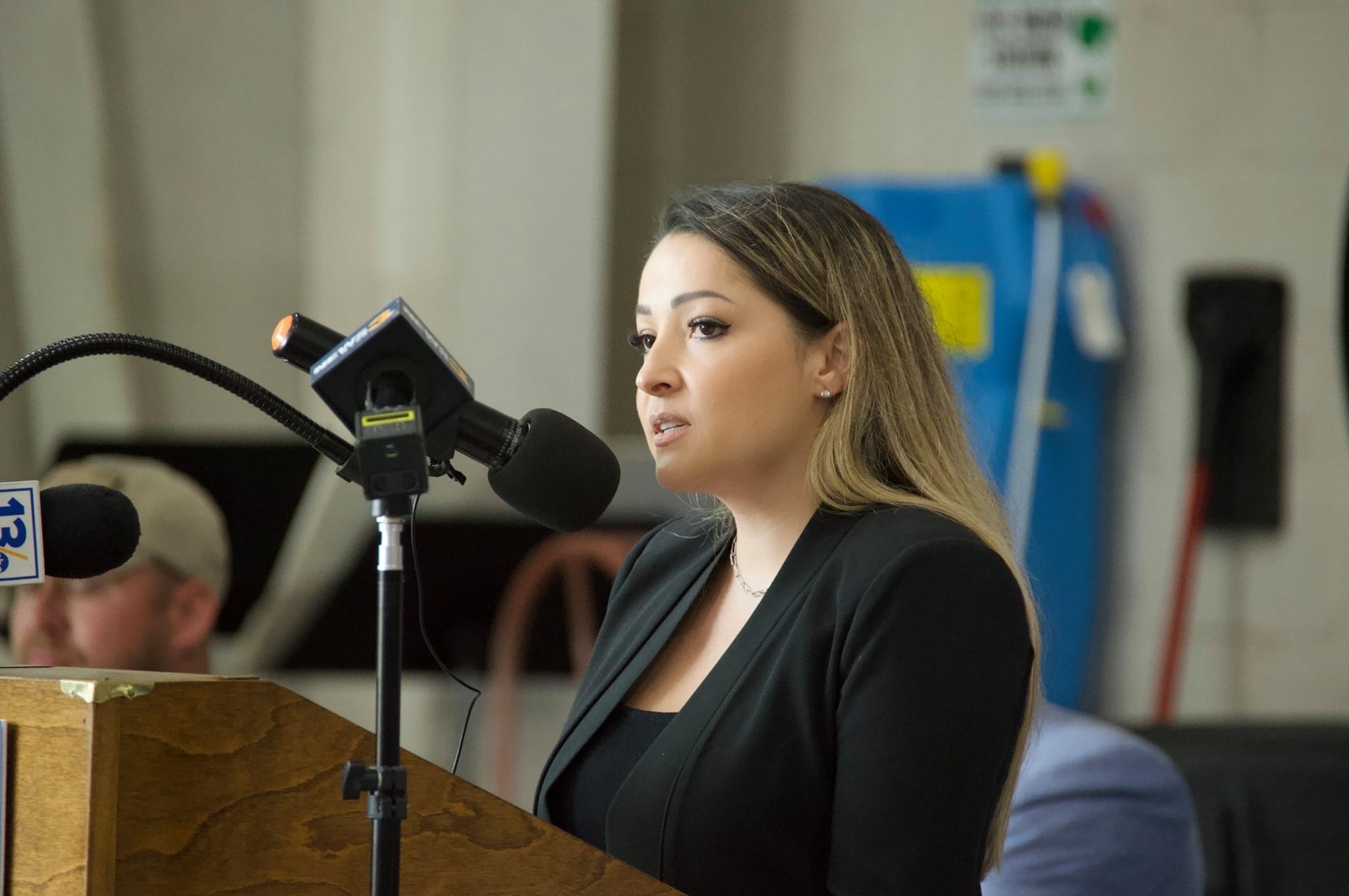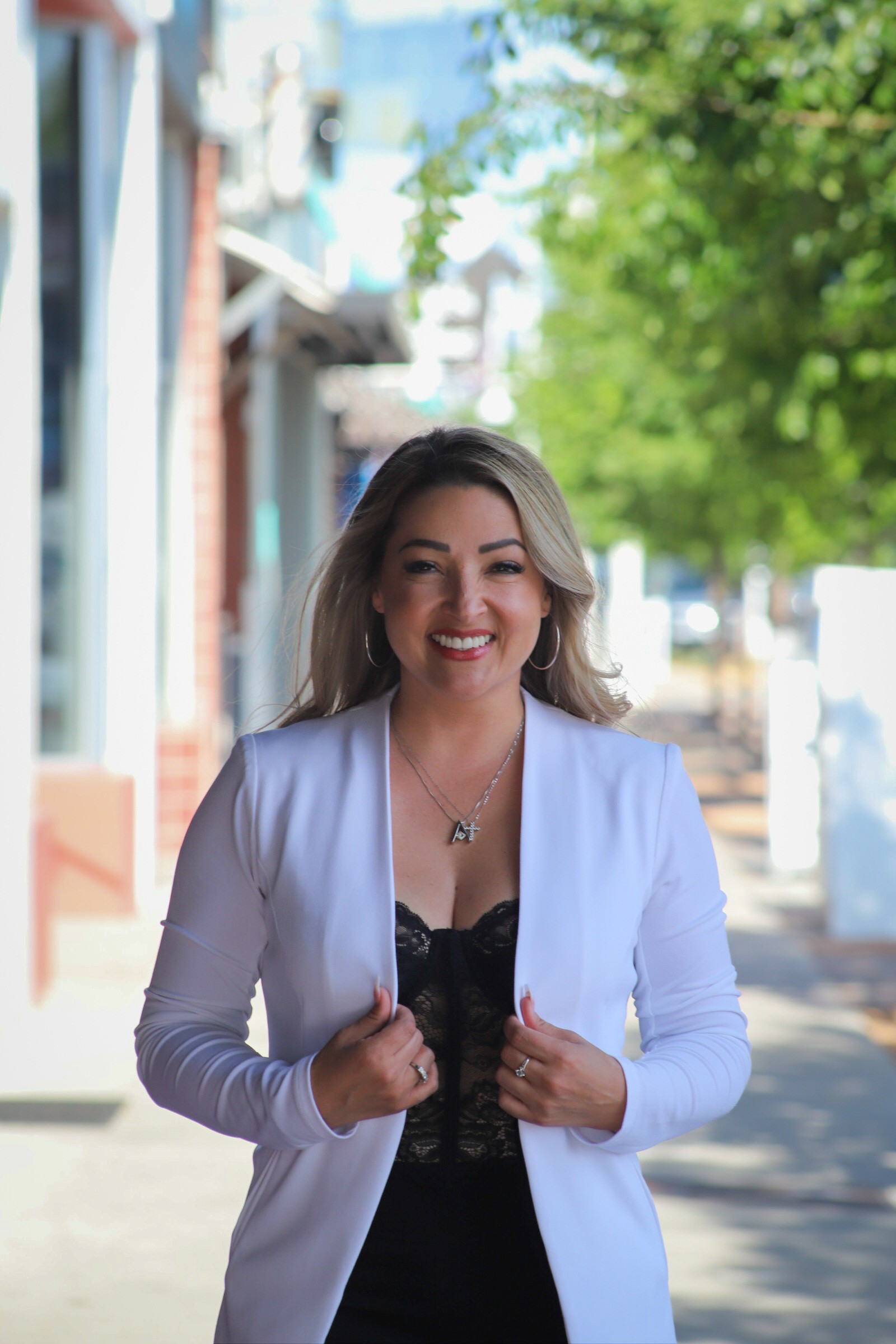Alright – so today we’ve got the honor of introducing you to Crystal Romero. We think you’ll enjoy our conversation, we’ve shared it below.
Alright, Crystal thanks for taking the time to share your stories and insights with us today. We love heartwarming stories – do you have a heartwarming story from your career to share?
In the heart of New Mexico’s sprawling landscapes, my journey unfolded within the Innovative Readiness Training Taskforce. At 23, I, Crystal, found myself deeply embedded in the military’s operations, often presenting to Army General Officers at Joint Task Force-North. Despite my achievements and dedication, there was a part of me that felt out of place, marked by the tattoos on my hands – remnants of a past life, symbols from a chapter I wished to close. These tattoos, gang symbols from before I found refuge and purpose in the military at seventeen, were a stark contrast to the person I had become. Being a single mother added another layer to my desire to erase these marks; I wanted to present the best version of myself to my child and not be judged for the missteps of my youth.
Feeling weighed down by these visual reminders of my past, I sought the counsel of my Command Sergeant Major, a person of wisdom and respect. I opened up about my desire to have the tattoos removed but was hindered by the financial burden it entailed. It was a moment of vulnerability, sharing a part of my story that I had kept shielded under the rings of my fingers and the sleeves of my uniform.
To my surprise and relief, the Command Sergeant Major took my concern to heart. He saw beyond the request, understanding the profound impact such a gesture could have on my life and career. He proposed a plan to The Adjutant General, suggesting a command directive that would allow me to have the tattoos removed without any cost to me. The Adjutant General’s agreement to this plan was a turning point for me.
The day I received the memorandum command directing tattoo removal , my world changed. It wasn’t just a document; it was a symbol of faith, an acknowledgment of my growth, and an investment in my future. The subsequent removal of the tattoos was transformative, not just physically, but emotionally and psychologically. It was as if I had been given a clean slate, an opportunity to redefine myself and stride forward without the weight of my past judgments.
This experience taught me an invaluable lesson about leadership and compassion. It underscored the profound difference that support and belief in someone’s potential can make. My leaders didn’t just see me for who I was or where I had been; they saw me for who I could become. Their investment in me was a testament to the idea that when we lift others up, we foster an environment of growth, respect, and mutual support.
The story of how my leadership helped me close a chapter of my past and confidently face my future is one I hold close to my heart. It’s a reminder that everyone has the power to change their narrative, especially when there are people who believe in and support them. It’s a lesson I will carry with me always: invest in people wherever and whenever you can. It truly makes all the difference.


As always, we appreciate you sharing your insights and we’ve got a few more questions for you, but before we get to all of that can you take a minute to introduce yourself and give our readers some of your back background and context?
For those of you who may not be familiar with my journey, my name is Crystal C. Romero, and my life has been a testament to dedication, resilience, and advocacy. My military career with the US Army National Guard spanned over 16 years, during which I served primarily in a full-time capacity. I started in logistics and, through a deep commitment to excellence and adaptability, moved through four Military Occupational Specialties, including stints in Public Affairs and as a Chemical, Biological, Radiological, Nuclear and explosives (CBRNE) Specialist with the 64th Weapons of Mass Destruction-Civil Support Team. My involvement in operations like the Space Shuttle Columbia recovery and humanitarian relief efforts for Hurricanes Katrina, Rita, and Ike exemplify my dedication to service and community.
Following my medical retirement, I faced my own struggles with transitioning to civilian life, depression, moral injury, and PTSD. These experiences led me to discover a new mission: advocating for veterans facing similar challenges. My efforts have been geared towards supporting veterans, influencing legislation such as The Brandon Act, and ensuring the well-being and rights of veterans are recognized and protected.
Today, I focus on leveraging my experiences to educate military leaders, clinicians, and academic institutions, including notable ones like the US Military Academy West Point and the University of North Carolina. My work is about making a tangible impact, helping those in uniform to transition smoothly and advocating for systemic changes that support our veterans.
What sets me apart is my firsthand experience in the military and my direct involvement in advocating for veteran’s rights. I am most proud of my ability to use my voice to effect change, not just for veterans, but in the broader discourse around mental health and transition support. For potential clients, followers, and fans, I want you to know that my brand and work are built on a foundation of service, resilience, and unwavering advocacy. My journey from a military career to a civilian advocate reflects my dedication to making a difference in the lives of those who have served our country. Residing in New Mexico with my daughters, my life continues to be a blend of personal dedication and professional advocacy, striving to ensure that the legacy of service continues to resonate and inspire.


We’d love to hear a story of resilience from your journey.
My journey has been a testament to resilience in the face of adversity. It began with a challenging childhood that led me into foster care at 14. Despite these early hurdles, I accelerated my education, finishing high school at 16 and enlisting in the army at 17. The army provided a semblance of stability and discipline, where I embraced various roles, from logistics to public affairs, and eventually specialized in Counter Narcotics and Weapons of Mass Destruction operations. The military was not just my career; it was my home and family. However, in 2012, this chapter came to an abrupt end due to a series of traumatic events, leading to severe depression, PTSD, and suicidal ideation, for which I sought help.
The aftermath of my hospitalization brought stigma and humiliation, marking the beginning of a downward spiral that culminated in my departure from active duty. As a single mother of three without full-time employment, I faced a daunting future. Yet, amidst this turmoil, I found a lifeline in Poshmark, an online marketplace. It wasn’t just the financial stability it provided by averaging $2K a month from selling clothes; it was the community. The support and friendships I found there, particularly with people like Kathy Adams, Sheila Deforest, and Brenda Edmondson, offered me a sense of belonging and encouragement that was transformative.
Despite the support, the battle with my inner demons continued, reaching a critical point in 2014 when the finality of my military career’s end pushed me to the brink. However, it was the unwavering support from my friend Brenda and the Poshmark community that pulled me back from the edge. They offered me an unconditional love and a sense of family that I had longed for, helping me to rebuild my confidence and strength during my lowest points.
Today, I share my story not just as a testament to my resilience but as a celebration of the profound impact of community support and love in overcoming life’s darkest moments. Poshmark, more than just an app, became a beacon of hope and empowerment, demonstrating the incredible difference we can make in each other’s lives. My journey underscores the importance of finding your community, one that uplifts and supports you through thick and thin. It’s a reminder that even in our lowest points, there is hope, there is a way forward, and there is strength in unity and love.
What’s a lesson you had to unlearn and what’s the backstory?
Unlearning negative self-beliefs, such as feeling unlovable or defective, is a deeply personal and often complex journey. I started by simply acknowledging these beliefs. Saying them out loud felt like giving form to ghosts, making them less terrifying. I saw them not as parts of me, but as external entities I could challenge and defeat.
Understanding their origins was my next step. Each belief traced back to moments of vulnerability—harsh words from an adult figure that cut deeper than they realized, ridicule from peers at a time when acceptance felt like life or death. I learned these moments didn’t define me; they were just moments, not eternal truths.
Challenging these beliefs became my daily ritual. Every time a thought of being unlovable or defective crept in, I countered it with evidence of the contrary. I reminded myself of the love I gave and received, the accomplishments I achieved through perseverance, and the simple, undeniable fact of my worthiness of love and belonging.
I sought support, opening up to friends and a therapist about my struggle. In their responses—full of empathy, understanding, and genuine love—I found reflections of myself that contradicted my deepest fears. Their support was a beacon, guiding me through the darkest parts of my journey.
Replacing my negative self-beliefs with positive affirmations felt like planting a garden in a barren field. “I am worthy of love,” I would tell myself each morning. “I am enough, just as I am.” These affirmations were the seeds of a new belief system, one that acknowledged my inherent worth and capability.
Building new experiences was crucial. I pushed myself to try new things, to step outside my comfort zone. Each new experience, each small success, was proof of my growth and resilience. I was not the person those old beliefs claimed I was; I was stronger, kinder, and more capable than I had ever given myself credit for.
Now, looking back, I see the journey from those shadowed beliefs to the light of self-acceptance as one of the most challenging yet rewarding experiences of my life. I learned that unlearning negative self-beliefs isn’t about erasing parts of yourself; it’s about rediscovering the truth of who you are beneath them. I am not unlovable. I am not defective. I am, simply and wonderfully, me.
Contact Info:
- Website: travelsforchocolate.com
- Linkedin: Crystal C. Romero
- Twitter: Crys_romero
- Youtube: Lilmscrys22
Image Credits
No other info


